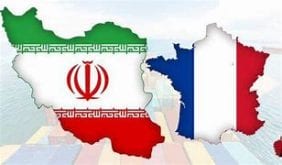Al-Arabia – The ongoing wave of poison attacks on schoolgirls in Iran is a plot by Tehran’s “enemies” to create fear in the country’s schools, President Ebrahim Raisi said on Friday.
“The enemy wants to create fear in schools and create chaos in various fields through insecurity and an atmosphere of fear and despair,” state news agency IRNA quoted Raisi as saying in his first comments on the issue.
He did not name any specific countries, but Iranian officials often use the term “enemy” to refer to the US and Israel.
Raisi said he has tasked the interior and intelligence ministers to investigate the poisonings and “thwart this conspiracy with a quick and accurate report to the people.”
Hundreds of cases of respiratory distress have been reported among schoolgirls across Iran in the past three months, and one government official said the poisonings could be an attempt to force the closure of girls’ schools in the country.
The US and German governments have expressed deep concern over the reports of poison attacks and called on Iran to investigate the incidents.
In response, Iran’s foreign minister condemned the “interventionist” reaction of Washington and Berlin, accusing them of continuing “the enemy’s compound war” against Iran.
“The great nation of Iran knows crocodile tears very well!” Hossein Amir-Abdollahian wrote on Twitter.
On Thursday, 21 female university students were taken to hospital after being poisoned in their dormitory in the city of Karaj, while at least 10 girls’ schools were targeted with poisoning attacks in the cities of Tehran and Ardebil on Wednesday.
Some Iranians, including prominent activists, have accused the regime of being responsible for the attacks. They believe that the poisonings, which come more than five months after protests that spread across Iran following Amini’s death, are deliberate and a form of “revenge” against schoolgirls for participating in the protests.
Amini died on September 16 after her arrest by the morality police in Tehran for allegedly breaching the country’s strict dress rules for women. Her death triggered months of protests that quickly escalated into calls for the overthrow of the Islamic Republic.
Schoolgirls across Iran joined the protests, with many videos on social media showing them taking off headscarves and chanting anti-government slogans, including on school premises.
 Shabtabnews In this dark night, I have lost my way – Arise from a corner, oh you the star of guidance.
Shabtabnews In this dark night, I have lost my way – Arise from a corner, oh you the star of guidance.



